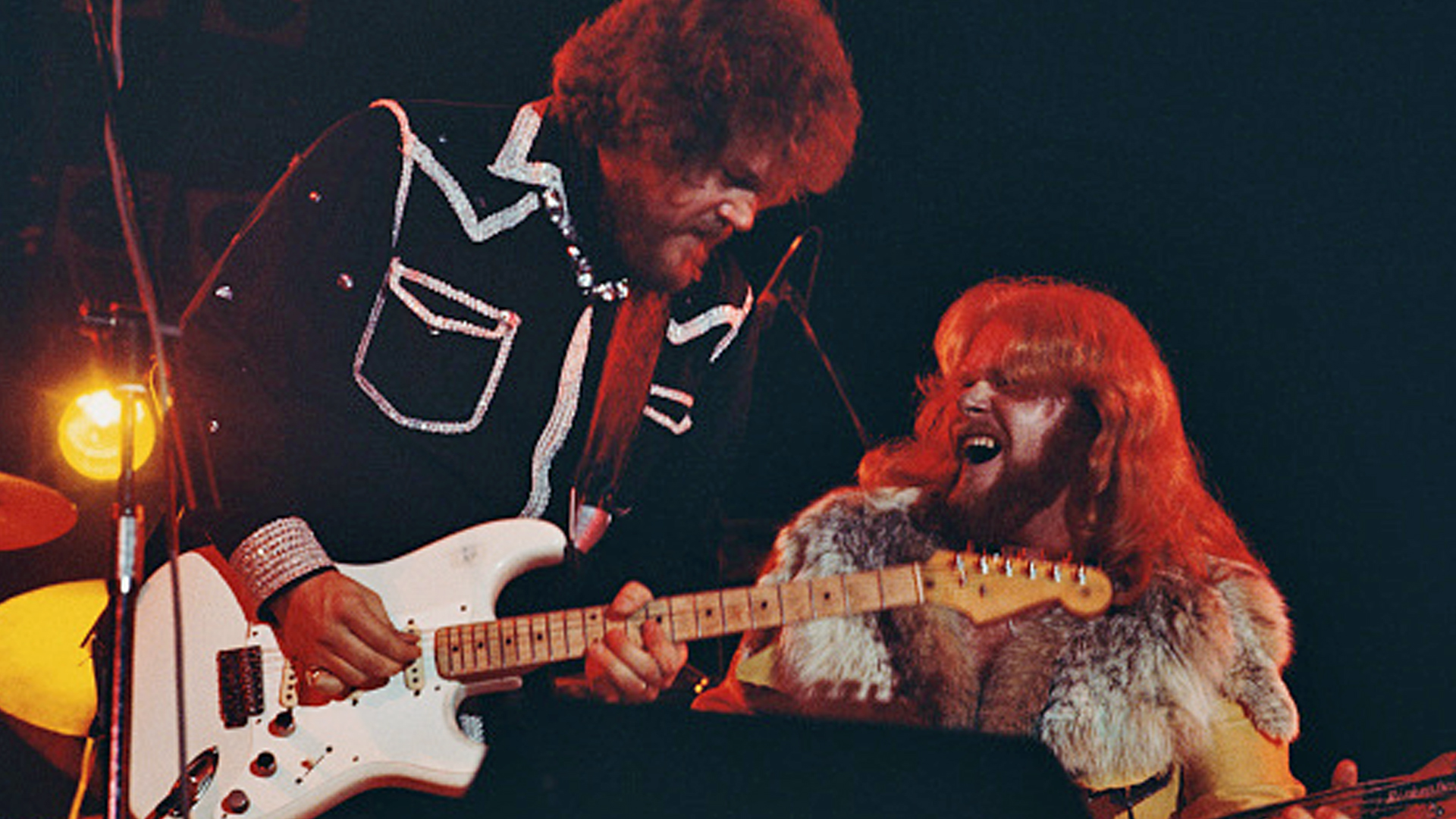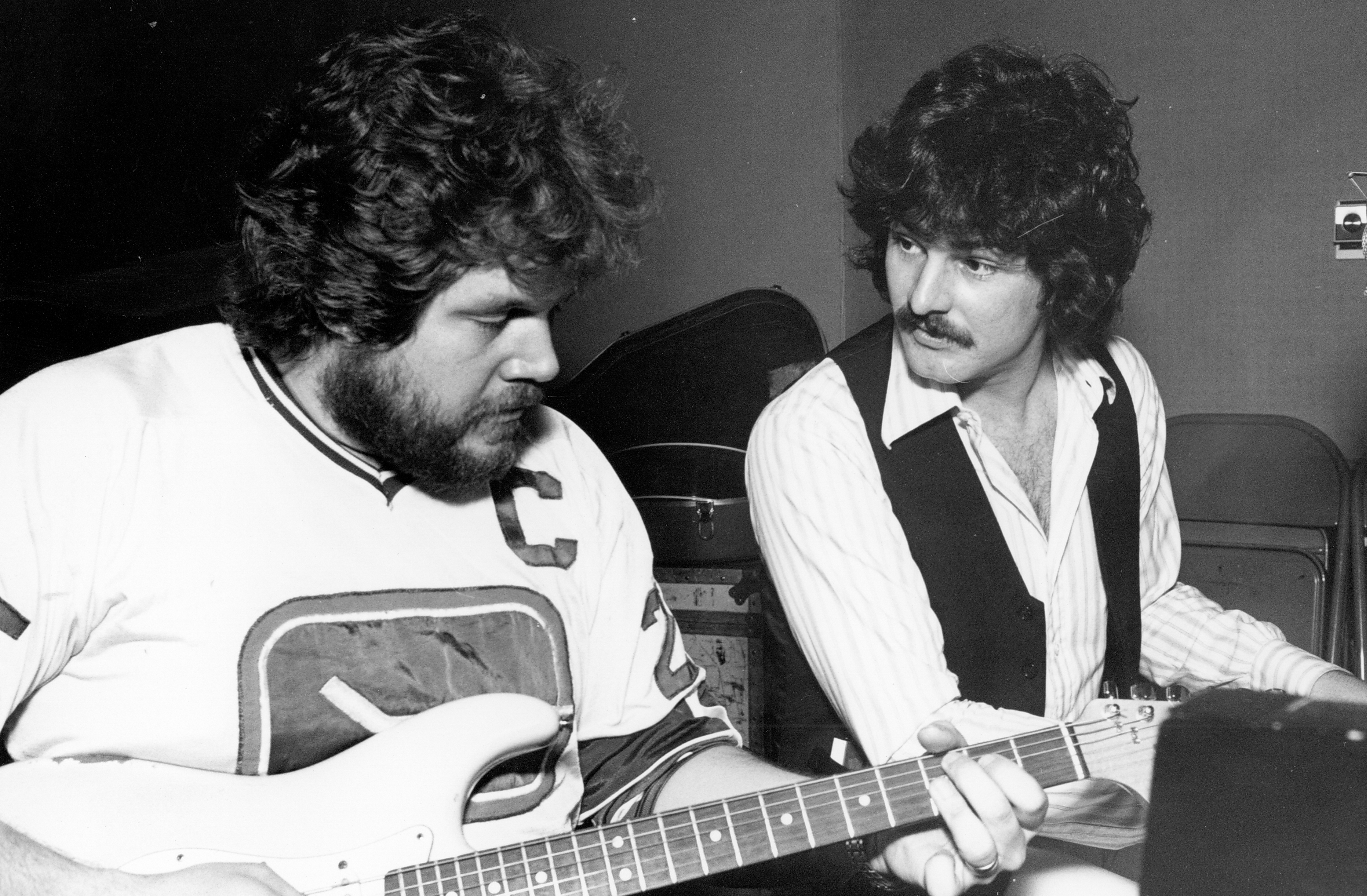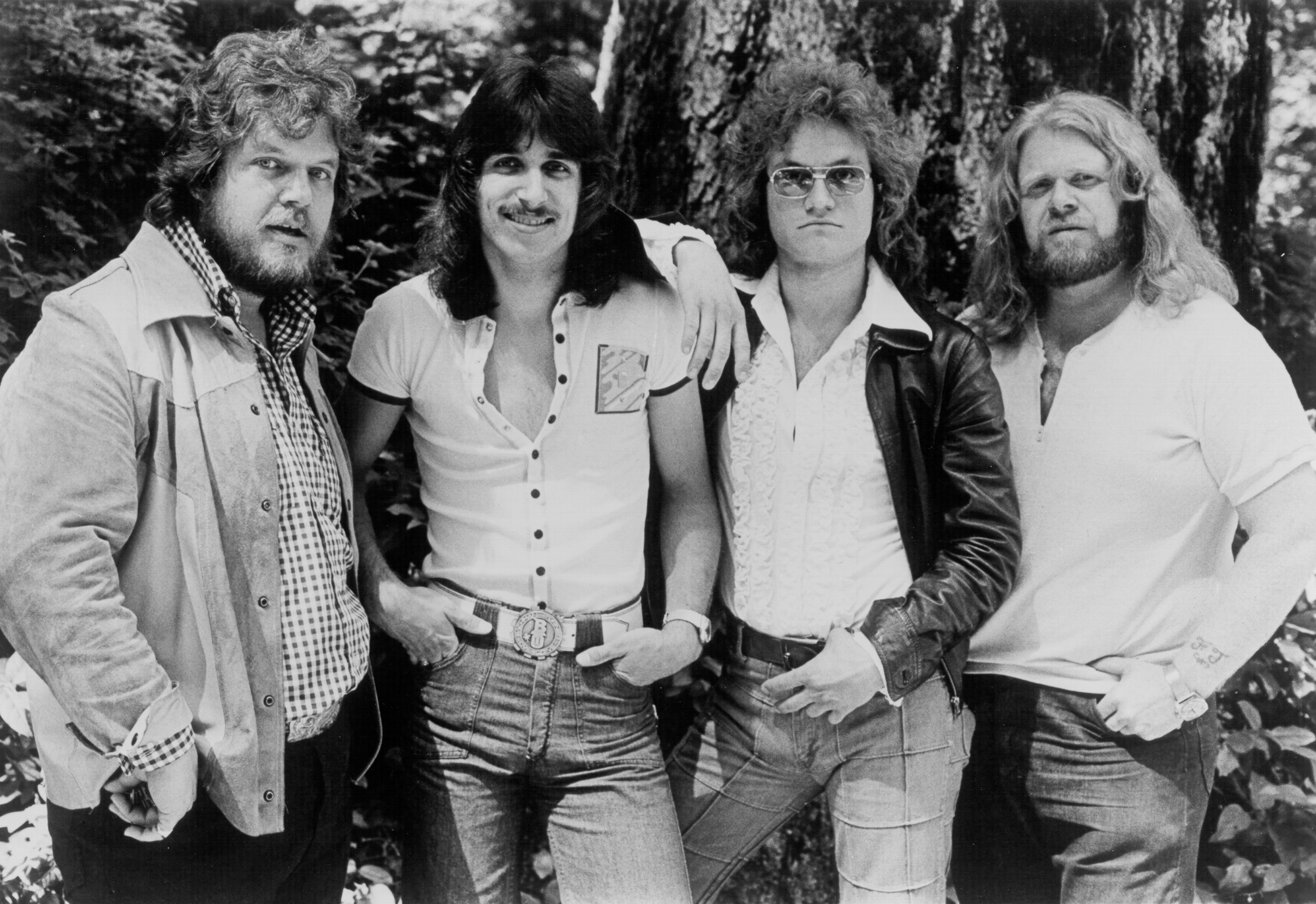“I said to them, ‘Just play these three chords and follow me!’ And then — boom — it hit me: This is a classic!” It took guitarist Randy Bachman seven years to write "Takin' Care of Business." It finally came together at one nearly disastrous show
The guitarist reveals that the Bachman-Turner Overdrive hit was actually inspired by the Beatles' "Paperback Writer" and written for the Guess Who

“That's my gift from the songwriting gods,” Randy Bachman says.
That gift is “Takin’ Care of Business,” Bachman’s 1974 hit single with Bachman-Turner Overdrive (BTO), and a staple of classic-rock radio ever since. But as the Canadian-born guitarist reveals to Guitar Player, his gift took a lot of hard work, rejection and patience to earn. Although it’s part of the BTO catalog, the song dates back to Bachman’s earlier group, the Guess Who, for whom he penned hits like “Undun” and co-wrote other smashes, like “American Woman” and “These Eyes,” with keyboardist and singer Burton Cummings.
But “Takin’ Care of Business” wouldn’t see the light of day until well after Bachman left the Guess Who in May 1970.
“That took me six or seven years to write,” he says. “I started it about ’67 at Scepter Studios in New York, where the Guess Who were recording.” Scepter had achieved fame in the early 1960s as the label for the Shirelles, Dionne Warwick and the Isley Brothers. The studio, though less successful, is notable now as the place where the Velvet Underground cut much of their debut record, The Velvet Underground & Nico, in April 1966.
At the outset, Bachman says, “I was trying to write a song like the Beatles’ ‘Paperback Writer’ — a day in the life of a guy — rather than write a love song.
“In fact, I was actually writing about Stanley Greenberg, who was the son of Florence Greenberg, who owned Scepter Records. She managed the Shirelles and Dionne Warwick, and she wrote [the Shirelles’ 1962 hit] ’Soldier Boy.’
“Her son Stanley Greenberg was the engineer, and he was blind. And every day coming to work, he would wear a white button-down shirt, a tweed tie, tweed jacket, tweed pants and brogue shoes. And this is in August in New York, when it's 95 above and 95 humidity! We’re wearing ripped shirts, cut-off pants, ripped jeans and clogs, and he's coming to work in a suit.
All the latest guitar news, interviews, lessons, reviews, deals and more, direct to your inbox!
"I told him. ‘I want to write a song about you.’ I wanted to call it ‘White Collar Man,’ 'cause he wore that white button-down shirt every day.”
— Randy Bachman
“We’d ask, ‘Stanley, why are you dressed this way? It's so hot out there!’ He’d say, ‘I want to look like George Martin. I know this is what he wears.’
“‘Okay, you look like George Martin,’ I told him. ‘I want to write a song about you.’
“I wanted to call it ‘White Collar Man,’ 'cause he wore that white button-down shirt every day.”
Bachman decided he would tag along with Stanley that evening to draw inspiration for his song.
“So we leave at 10 o’clock at night,” Bachman continues. “And I asked him, ‘So what happens in the morning when you get up and go to work?' And he says, ‘Well, it's crowded, and I take the 8:15 into the city.’
"And I start thinking: I wake up in the morning, the alarm clock's warning, I take the 8:15 into the city. ‘And then what?,’ I asked him. He says, ‘I smell makeup and hairspray. The girls on the train are trying to do their makeup to look pretty for their jobs. And then I walk to work and start my slavin' job to get my pay.’
“I thought, Great! There's a song!"

While the verses that Bachman wrote up hewed closely to the song as it’s known today, the familiar chorus and its refrain were nonexistent. As Bachman explains, “Originally, when we got to the hook, the song stopped and we sang, ‘White Collar Man,’ the same as [sings] ‘Paperback Writer.’
The song’s debut was anything but successful.
“I played it for Burton Cummings, who hated it,” Bachman recalls. “He said, ‘The verses are great — but "White Collar Man?" Gag me with a drumstick! I'm never gonna do this song. We'll get sued by Lennon and McCartney. Let me change the hook.’ I said, ‘No, it's my song. I'll find the hook!’
“So that song never made it onto any Guess Who album.”
By the latter half of 1970, Bachman was on his own, having left the Guess Who when tensions with Cummings reached the breaking point. He formed Bachman-Turner Overdrive with his brothers, guitarist Tim and drummer Robbie, and bassist and lead vocalist C.F. Turner. But Bachman hadn’t forgotten about “White Collar Man.”
"Burton said, 'I'm never gonna do this song. We'll get sued by Lennon and McCartney! Let me change the hook.' "
— Randy Bachman
“I'm driving to a gig one night,” he recalls, “and this DJ on the radio, who I knew very well, says, ‘This is Daryl B on CFUN radio, takin' care of business!’ I thought, What a song title!”
Arriving at the gig, Bachman learned Turner had lost his voice and couldn’t sing. “So I had to sing the last set on a Saturday night in a rock and roll club,” he says. “And I’m not a singer.”
Staring down disaster, Bachman gamely took on vocal duties but was limited in what he could perform given his skills. After leading the band through improvised versions of various tunes, including Santana’s ”Oye Como Va" — “I don't know Spanish but it was on the radio and everybody loved dancing to it, so I sang it phonetically” — Bachman was at a loss for what to play.

“And then a little light went on in my head,” he says. “I thought, This is your big chance for 'White Collar Man!' Put it together with the 'takin' care of business' line you just heard on the radio. The band can't say no — they are your hostage.
“I said to them, ‘Just play these three chords and follow me!’ And I starting singing, ‘You get up every morning the alarm clock's warning... ‘ And when I got to the hook, I started singing, ‘Takin' Care of Business.' ”
By the next chorus he had the band singing along with him. “And I answered them with ‘Every day!’ and ‘Every way!’
“And then — boom — it hit me: This is a classic!”
The group recorded it a few weeks later, with Bachman playing his 1957 Gretsch 6120 electric guitar and taking lead vocals for the first time “Fred told me, ‘You should sing this,' ” Bachman recalls of the session. “ 'You'll be, like, my relief pitcher.’ It felt like a real BTO song."
“I said to them, ‘Just play these three chords and follow me!’ And I starting singing."
— Randy Bachman
Released on Bachman-Turner Overdrive II, “Takin’ Care of Business” was released as a single in January 1974 and began a slow march up the charts, reaching number 12 on the Billboard Hot 100 that August and remaining on the chart 20 weeks, the longest of any BTO song.
Although BTO called it quits in 1980, they reformed several times, most recently in 2023, albeit with a revised lineup that includes Bachman’s son Tal on vocals, guitar and piano. The reunion was a welcome celebration for Bachman, who was already glowing after recovering his Gretsch 6120, which was stolen in 1976.
As for “Takin’ Care of Business,” it lives on today on classic-rock radio, commercials, film and TV. The phrase has also become part of the modern lexicon for hourly and salaried employees everywhere, a richly deserved reward for Randy Bachman's long, hard work.
Gary Graff is an award-winning Detroit-based music journalist and author who writes for a variety of print, online and broadcast outlets. He has written and collaborated on books about Alice Cooper, Neil Young, Bob Seger, Bruce Springsteen and Rock 'n' Roll Myths. He's also the founding editor of the award-winning MusicHound Essential Album Guide series and of the new 501 Essential Albums series. Graff is also a co-founder and co-producer of the annual Detroit Music Awards.

